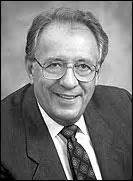A Quote by Sri Sri Ravi Shankar
The purpose of laughter is to bring one to silence, and the purpose of silence is to bring one to laughter.
Quote Topics
Related Quotes
These two are the parts. The inner silence - the silence so deep that there is no vibration in your being. You are, but there are no waves. You are just a pool without waves, not a single wave arises. The whole being silent, still. Inside, at the center, silence, and on the periphery, celebration and laughter. And only silence can laugh, because only silence can understand the cosmic joke.
Everybody knows from his own experience that after laughter, good laughter, a belly laugh, you almost feel that you have taken an ice-cold shower; a peace, a silence, a freshness... The same is true about crying, but very few people know the secret of crying because it is more repressed than laughter.
A vast silence reigned over the land. The land itself was a desolation, lifeless, without movement, so lone and cold that the spirit of it was not even that of sadness. There was a hint in it of laughter, but of laughter more terrible than any sadness-a laughter that was mirthless as the smile of the Sphinx, a laughter cold as the frost and partaking of the grimness of infallibility. It was the masterful and incommunicable wisdom of eternity laughing at the futility of life and the effort of life. It was the Wild, the savage, frozen-hearted Northland Wild.
Perhaps the most important thing we bring to another person is the silence in us, not the sort of silence that is filled with unspoken criticism or hard withdrawal. The sort of silence that is a place of refuge, of rest, of acceptance of someone as they are. We are all hungry for this other silence. It is hard to find. In its presence we can remember something beyond the moment, a strength on which to build a life. Silence is a place of great power and healing.
You know how it is in the symphony when you are listening to the symphony, the last notes die away, and there's often a beat of silence in the auditorium before the applause begins. It's a very full and pregnant silence. Now theology should bring us to live into that silence, into that pregnant pause.
Laughter to begin with was probably glee at the misfortunes of others. The baring of the teeth in laughter hints at its savage ancestry. Animals have no malice, hence also no laughter. They never savor the sudden glory of Schadenfreude. It was its infectious quality that made of laughter a medium of mutuality.
There is an old proverb to the effect that 'all those who open their mouths, close their eyes!' The purpose of silence and solitude is to be able to see and hear. Control rather than no noise is the key to silence. James saw clearly that the person who could control his tounge is perfect (James 3:1-12). Under the Discipline of silence and solitude we learn when to speak and when to refrain from speaking.








































